EN

‘SONDA [PROBE] - Prospecting Practices at the Crossroads of Art, Politics, Knowledge and Ecology’ is the theme of this year's exhibition programme at the Porto gallery RAMPA. The concept of ‘probe’ contains the idea of exploration, of excavation, of crossing surfaces to reach the invisible, the deep, the distant. This is the aim of this cultural association that wants to provoke critical thinking.
RAMPA's new space is in warehouse K on Rua Particular de Justino Teixeira in Campanhã. The gallery reopened there at the end of February, after moving out of Pátio do Bolhão. We are greeted by three of the twelve members of the cultural association, created in 2018, which manages this space: Susana Gaudêncio, artist, curator, teacher and researcher; Vera Carmo, co-founder of RAMPA, curator, cultural producer and researcher; and Nuno Coelho, artist, designer, teacher, researcher and curator.
‘We have people visiting us every day,’ says Vera, who adds that the exhibition Desnaturadas, which ended in April and of which she was curator, received more than three hundred visitors. ‘In the other space we didn't have a daily frequency like we're having here.’ Nuno confesses that he ‘felt a little afraid of leaving a very central position and moving to a more remote area’, but it worked out in the end. ‘The other space was a basement; this space, because we have windows with natural light, is more flexible; we can blackout and have darkness, but we can also have natural light, and, in, terms of area, it's bigger,’ adds the artist and curator.
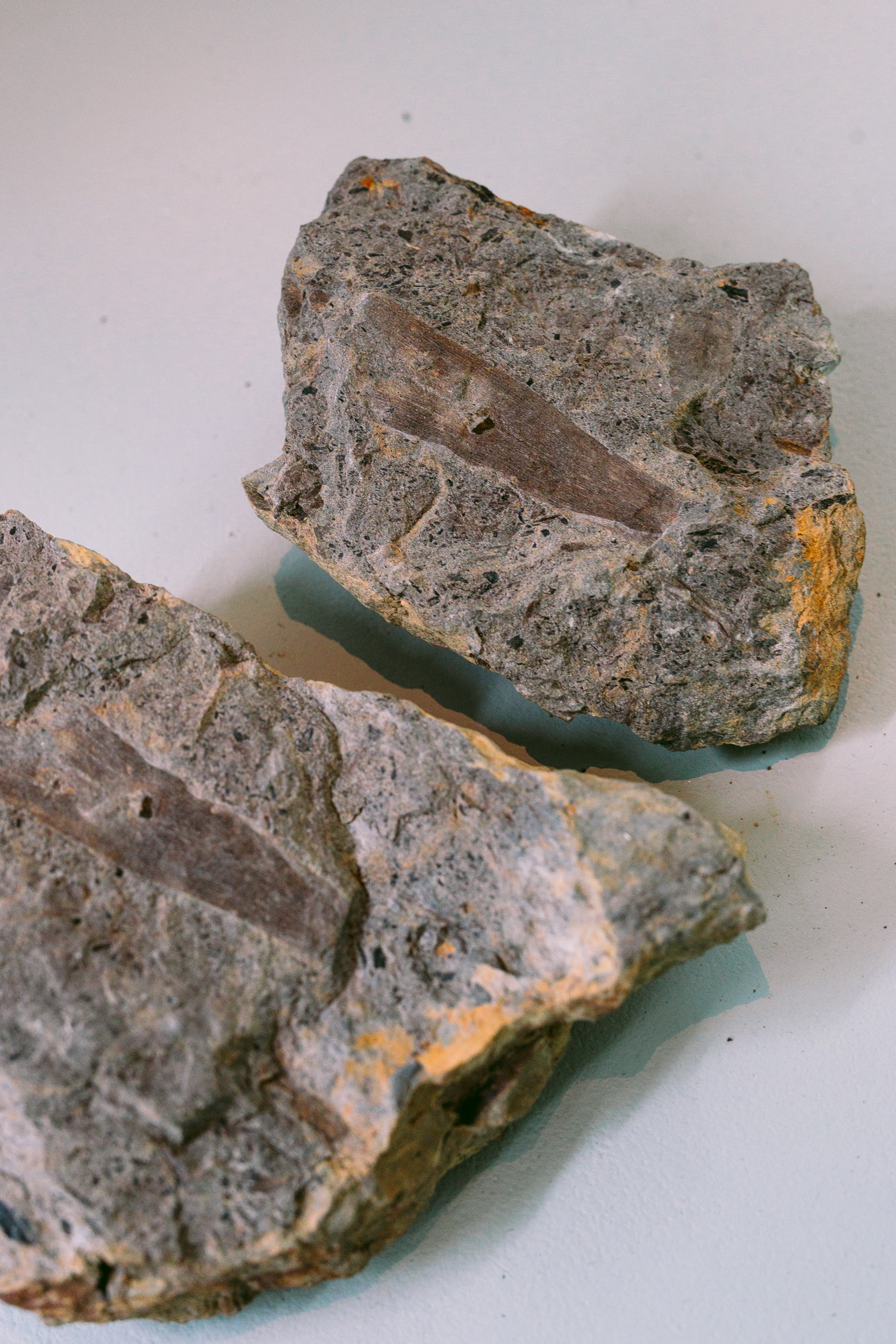
Da exposição Desnaturadas © Renato Cruz Santos
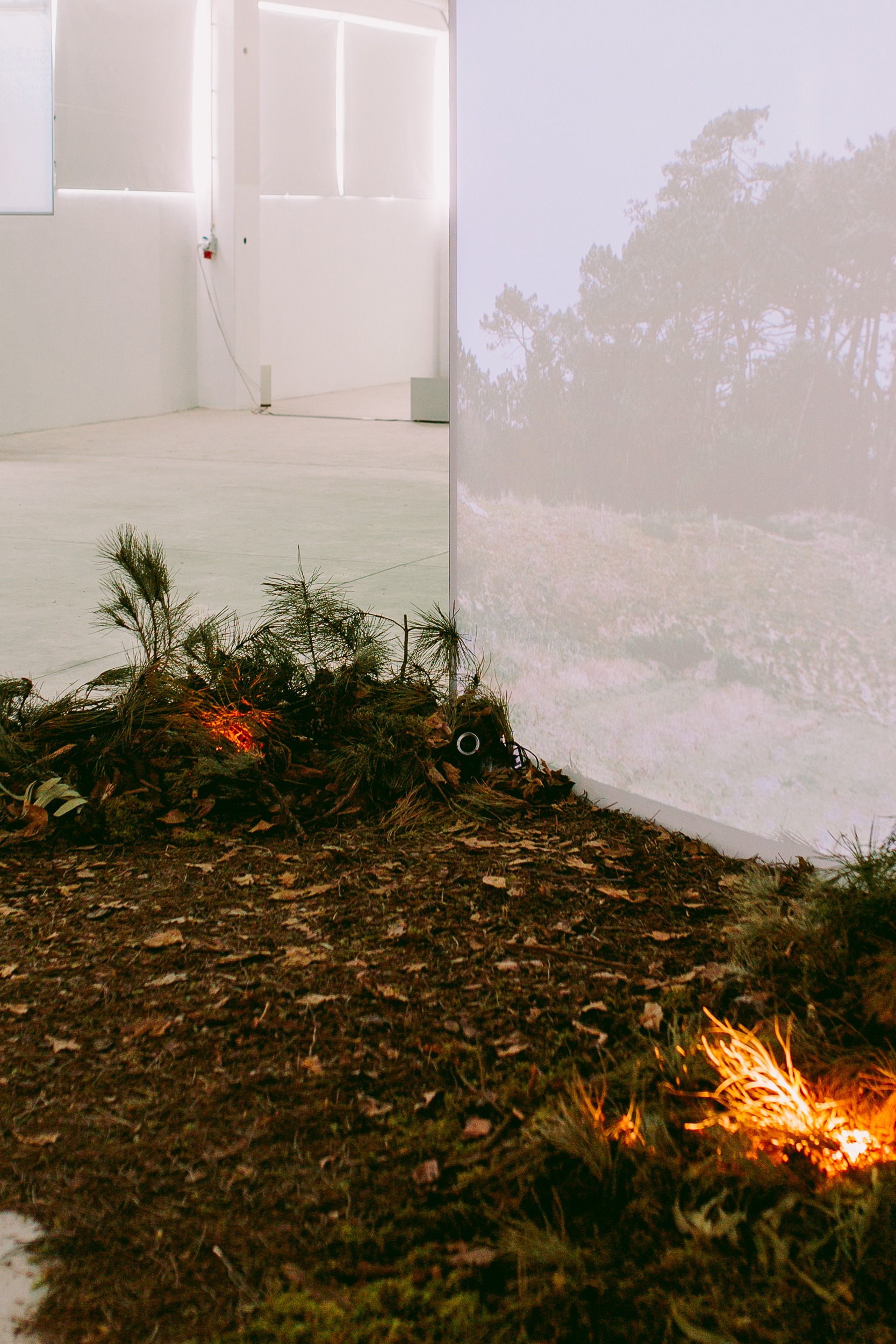
De Areia e Sal, de Mariana Vilanova, em Desnaturadas © Renato Cruz Santos
RAMPA was founded by the artist Nuno de Campos, ‘who decided to create a cultural association when he came from New York,’ says Susana. ‘Nuno had an artistic practice and didn't want to lose his connection to the visual arts by coming here,’ adds Vera.
‘Researching and finding bridges between Porto and the world’ is one of the missions of this space, which aims, through its programme, to “promote local creators”. ‘We want to provide the conditions for producing and exhibiting work that can then take the artist onto a gallery or museum circuit,’ says Vera, emphasising that “one of the intentions of this space is to give visibility to young artists from Porto”. This is precisely what happened at the group exhibition Desnaturadas, which inaugurated the new address.
At RAMPA, the programme is decided ‘collectively’. All the members make suggestions of artists and also of ‘external’ curators because we want to ‘avoid the programme being one hundred per cent endemic’, says Susana. ‘We try to fulfil the ‘rule’ that no one can curate two years in a row. We take a break; I curated this exhibition [Desnaturadas] now, in 2025, and I won't do it again until 2027,’ Vera explains. ‘It's so that it's not always the same people doing the curating and it's also so that we can give space to guest curators who, ideally, even come from abroad,’ she adds.
Nuno Coelho stresses that the annual programme always has an ‘[overarching] theme’: ‘we don't look at the exhibitions in isolation; we try to ensure that all the exhibitions in the same calendar year have an [overarching] theme’. There is therefore a concern to work ‘on a macro scale’, in other words, ‘to look at the exhibitions as a whole, and that they somehow interrelate with each other’.
In this sense, Susana notes that this year's theme, in which the Desnaturadas exhibition is included, is SONDA [PROBE], ‘as an instrument for planetary and extra-planetary prospection’. The curator points to ‘three specific thematic lines linked to the probe’ to design RAMPA's exhibition programme: ‘one more linked to art, politics and ecology; another linked to pedagogical systems and the way knowledge is prospected; and another line more linked to decolonial and intersectional issues’.
Alongside the exhibition programme, this space is presenting, for the first time, a public programme comprising two workshops and a public assembly, which will take place in the auditorium of the Almeida Garrett Municipal Library, and in which names such as Pascal Gielen, Patrícia Esquete, Aysha Hameed and Maria Hlavajova will take part.
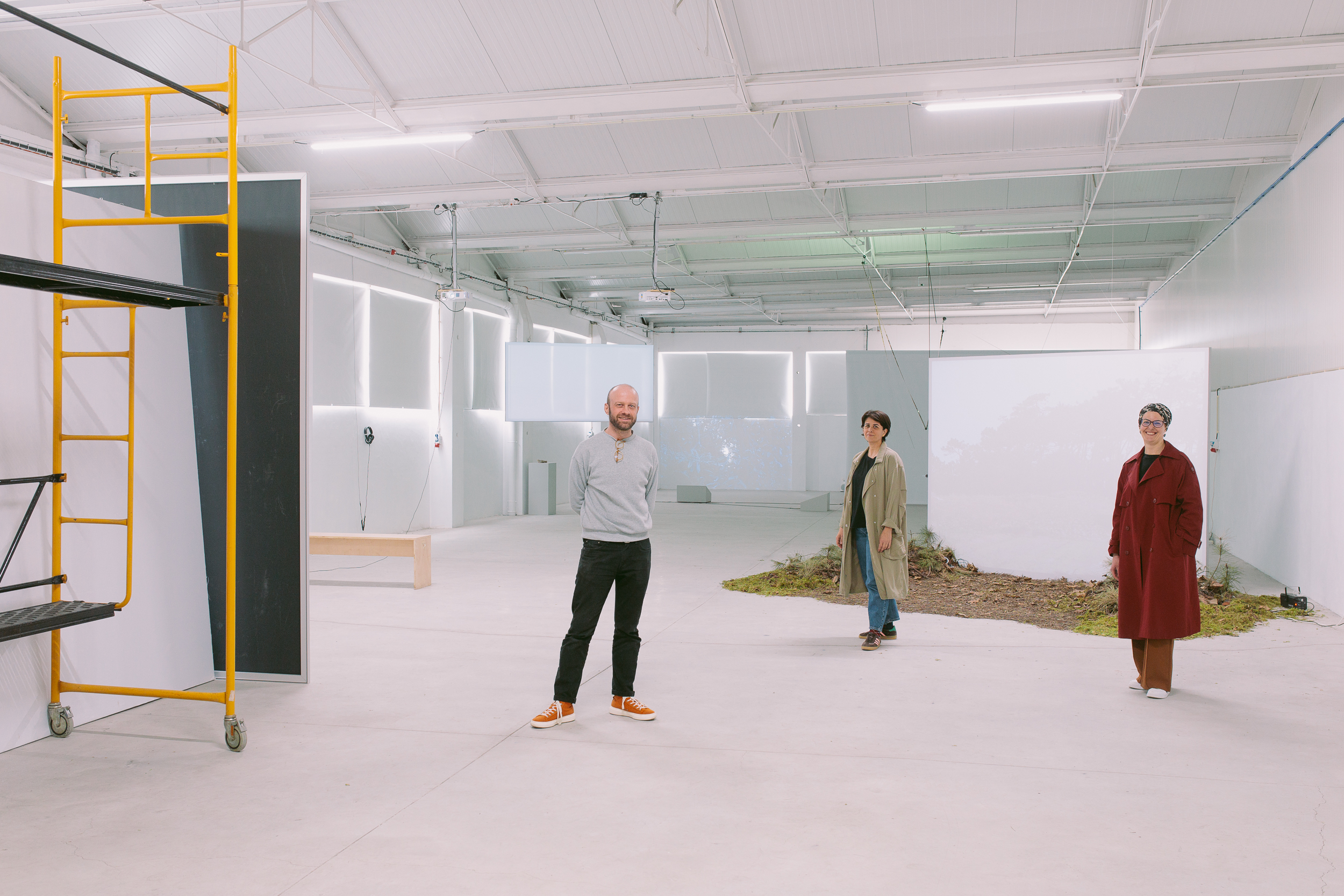
Nuno Coelho, Susana Gaudêncio and Vera Carmo © Renato Cruz Santos
RAMPA's activities for this year also include a cycle of performances, from 27 to 29 June, in partnership with Contemporânea, curated by Alexandra Balona, and focusing on the Atlantic Ocean, welcoming proposals from national and international artists that will be presented at the space in Campanhã and at the Biodiversity Gallery, as well as an educational service.
As part of the educational service, guided tours, talks and workshops are being held with the student community through partnerships with the Bonfim Parish Council, the Academia Contemporânea do Espetáculo and the Escola Artística Árvore, as well as through the CERCAR-TE project at Cerco and Lagarteiro neighbourhoods, activities which are linked to RAMPA's exhibition programme.
‘At the time we proposed this programme, we didn't yet know we were going to be in Campanhã; we tried to create relationships with what was more or less close to us, and within what our working relationships are,’ says Susana, stressing that “in the short term, it will make perfect sense” to establish partnerships with neighbouring spaces.
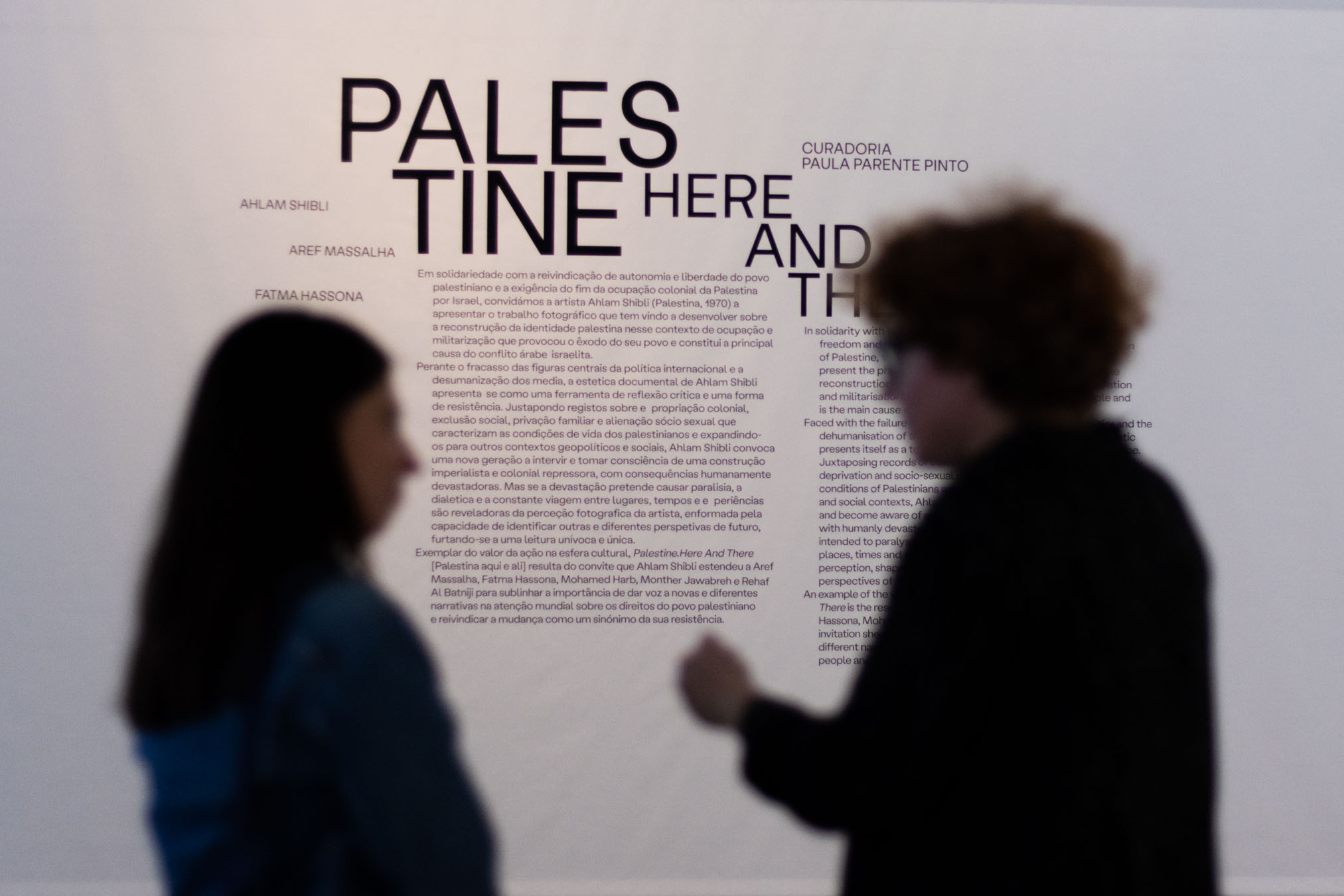
Inauguração da exposição Palestine Here and There © Andreia Merca
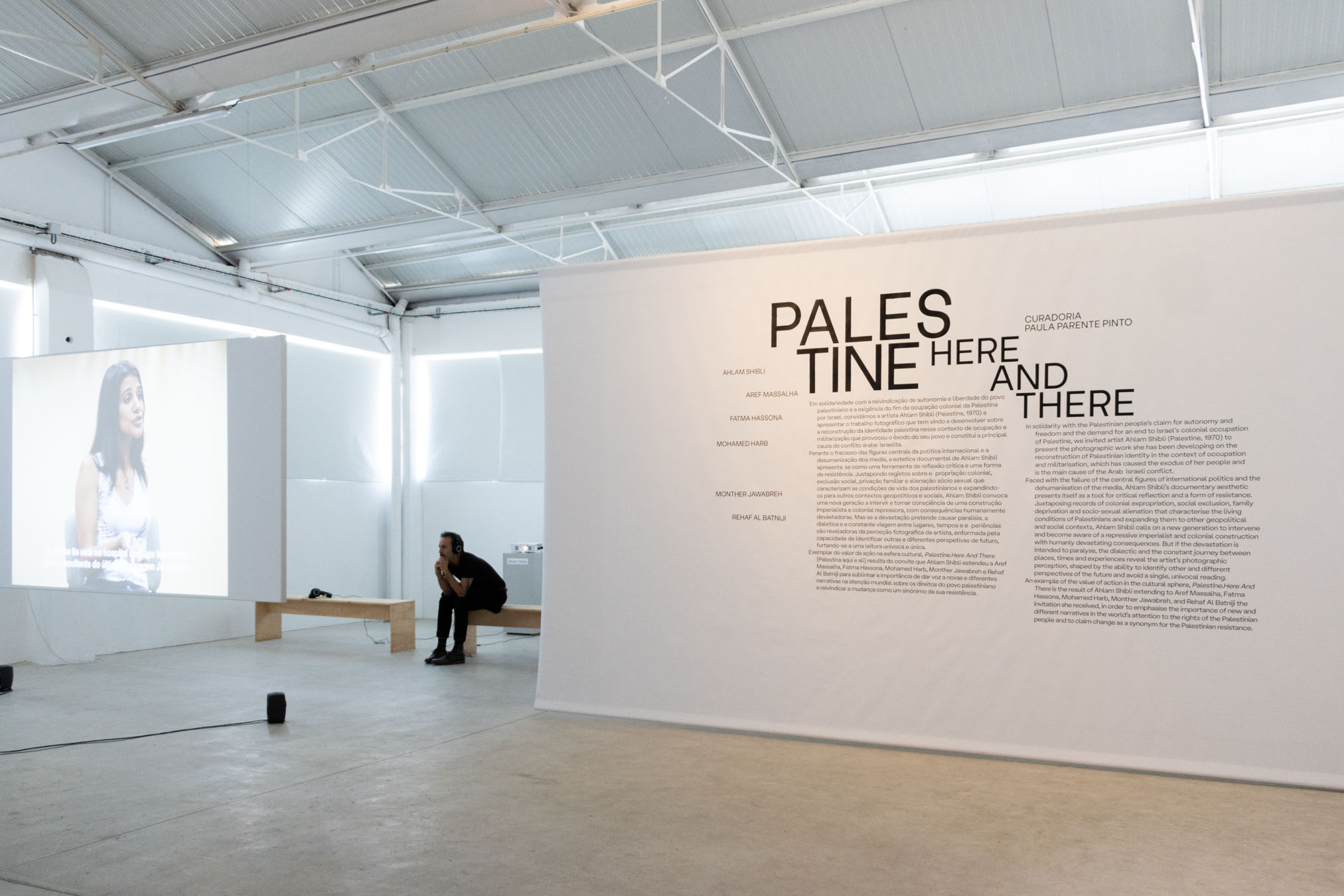
Inauguração da exposição Palestine Here and There © Andreia Merca
As for the exhibition programme, until 14th June there is the Palestine Here and There exhibition by Palestinian artist Ahlam Shibli, who invited five Palestinian photographers to present their work, namely Aref Massalha, Fatma Hassona (who died in mid-April following an Israeli air strike), Mohamed Harb, Monter Jawabreh and Rehaf Al Batniji, and which is curated by Paula Pinto.
By the end of the year, RAMPA will be showing two more exhibitions: Ager vem antes da cultura, by Susana Soares Pinto, ‘an artist from Porto who is not so young, but young as an artist, curated by Juan Luiz Toboso’, and an exhibition by the Iranian-Pakistani artist Samir Mahmood, curated by Miguel Amado. RAMPA can be visited from Wednesday to Saturday, between 15h00 and 19h00.
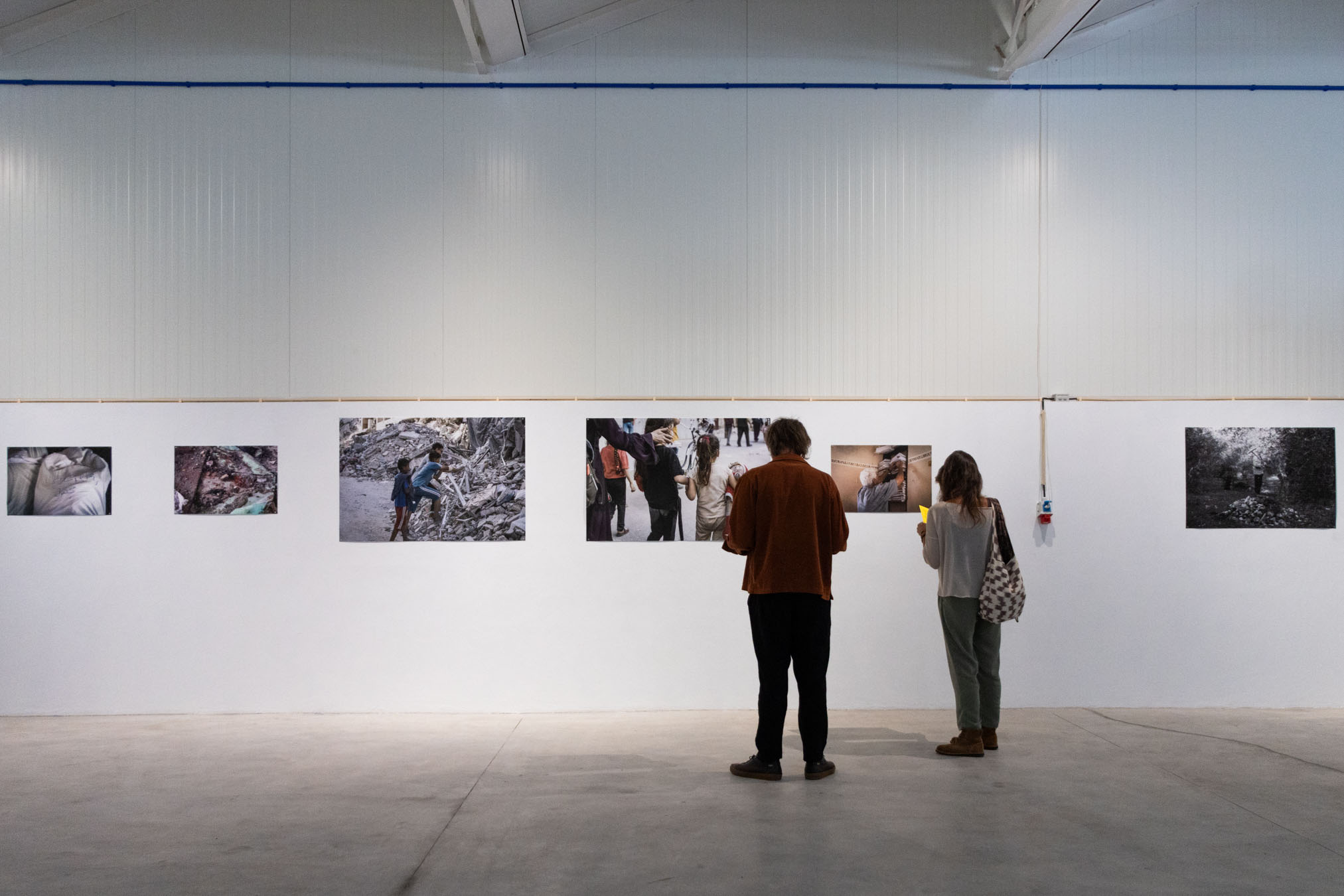
Opening of the exhibition Palestine Here and There © Andreia Merca
Share
FB
X
WA
LINK
Relacionados


